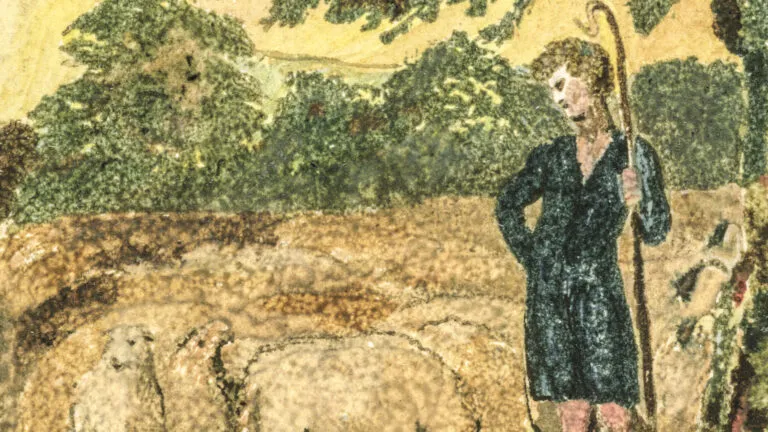Would you like to be able to predict the future? A movie director can, you know. In making a film, he takes an imitation slice of life in his hands and arranges it just the way he wants it. He knows, in the first scene, just what is going to happen in the last.
Now, this is a godlike quality. It gives the director a great sense of power. But there’s just one small trouble with it. The stuff the movie director is working with isn’t real. It’s synthetic. It’s not life itself. It’s only an imitation of life.
In real life, we can plan, and take precautions, and hope that things will happen in a certain way. But we can never be sure. And I sometimes wonder why it is that, if we try too hard to control the future, we get a rude shock.
I ran up against this hard fact quite early in my movie career. It was back in London when I was still in my twenties, young, unknown, but very knowing—or so I thought.
I’d entered the movies through the back door, first designing titles, then as a cutter, script writer, set designer, production man, and finally as a director of a few minor films.
When I got the opportunity to pick my own story and direct it for one of the major British studios, I was certain I had the future, in the film and out of it, right in my hand.
The story I chose was The Lodger, a quiet yarn in which one of the occupants of a rooming house is suspected of having a secret hobby—homicide.
Films were still silent in those days, and I used every trick I could think of to build the suspense visually and hide the outcome. It was full of innovations; I was very proud of the result.
When the day came for the bigwigs at the studio to see it, my wife Alma and I remained at home, excited, but unworried. We knew they’d like it. Like it? They’d love it!
We timed our arrival at the studio to coincide with the ending of the screening. When Alma and I walked in, we knew instantly we hadn’t convinced anyone of the superlative merits of Alfred Hitchcock, director.
“It could be patched up,” one of the executives said hopefully.
“No,” I said stubbornly.
“There’s a lot of money tied up in this,” another executive said.
“No,” I persisted.
Then the big boss uttered the final doom: “It’s unshowable. We’ll shelve it.”
It was a kind of day of judgment. Alma and I stumbled out of the studio. We walked. And we prayed. For what? For another chance.
This had been my first real chance at directing. Once a director in the movies, it’s impossible to go back to a lesser job, like title or set designing. I was like a new captain given his first ship and running it on the rocks. Finished.
For months the film sat in a can on the studio’s library shelves. But one day one of the executives, the one who said there was an awful lot of money tied up in it, suggested that it be shown quietly to a few distributors, with the explanation—and apology—that the studio didn’t think much of it, just wanted expert reaction.
The few distributors watched it, and that magic ingredient, unpredictability, began working. They liked it. The studio decided to release it. All the distributors wanted it. The Lodger became a great movie hit from the very start.
But I was not elated. No. I had to find a rational explanation for the strange events that made it a failure at the beginning and an enormous success at its end.
In the film story the synthetic future was certain. I controlled it. When I completed the movie, I was arrogantly certain of its real future too. I was sure that everyone would love it. When they didn’t, I walked about in desperation, praying for another chance.
There it was: I had been grasping at the real future, wanting it in my own hand. It was almost as if God deliberately delayed success to show me that my efforts at controlling the future were not in His scheme of things.
This was an amazing thought. But over the years I’ve been forced to the conclusion that a blind future is one of God’s most strictly enforced rules and that scientific effort to see into the future is also doomed to failure. There are two main reasons.
The first reason is simple. In life, if we knew the outcome of everything, most of the zest would go out of living. What fun would it be to go to a baseball game if you knew which team was going to win? Why go fishing if you knew that you would (or wouldn’t) catch fish?
The unknown has its appeal precisely because it is mysterious. Take the concept of heaven for instance—wouldn’t we tend to lose some of our interest in it if we knew exactly what it was like?
So when God keeps the future hidden, He is saying that things would be very dull without suspense.
But I think He has a deeper reason than that when he hides the future. I think He is also being merciful. Because, if life would be dull knowing about tomorrow, it would also be terrible.
Do you remember the story of the king who befriended a wizard and was granted two wishes? His first wish was to see the future completely.
But when the king saw the pain, the misery, the death, along with the beautiful things ahead, he immediately asked for his second wish: that the future be hidden again.
“I did not know that I already had the greatest gift of all,” he explained. “The gift of a blind future.”
And so, I’ve come to believe that a hidden future is one of God’s most merciful and exciting gifts. Without it there would be nothing to wait for, worse, nothing to hope for. In any case, whether we like it or not, we have to live with it.
How we live with it is up to us. We can live in a state of constant anxiety about the future, always afraid that in the long run the bad guy wins, injustice triumphs, and mankind will destroy itself.
Or we can use the gift creatively: help men of good will to win, justice to triumph, and believe that the drama of man must end in happiness.
In other words, we can live in a state of chronic despair, or we can live with faith in the future, even though it is hidden from us.
Yes, the best thing about the future is that it comes one day at a time. And I thank Heaven daily that tomorrow does not belong to any man. It belongs to God.
Check out Guideposts’ Inspiring Cameo in a Hitchcock Classic!
For more inspiring stories, subscribe to Guideposts magazine.






